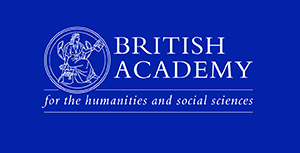Latest News Archive
Please select Category, Year, and then Month to display items
12 January 2024
|
Story Nonsindiswe Qwabe
|
Photo Sonia Small
 Since joining the UFS in 2008, Dr Grey Magaiza has worked extensively on approaches that can foster the socio-economic transformation of societies.
Since joining the UFS in 2008, Dr Grey Magaiza has worked extensively on approaches that can foster the socio-economic transformation of societies.
“The future should be one where communities can decide on their development agenda and futures. That’s the most important for me.” Dr Grey Magaiza, Deputy Director of the Centre for Gender and Africa Studies (CGAS) and Head of the Community Development programme on the Qwaqwa Campus, is passionate about capacitating communities to be agents of change and advancement. His vision for the future emphasises the empowerment of communities to take charge of their development by actively participating in decision making and the implementation of development projects that can improve their lives.
Since joining the UFS in 2008, Dr Magaiza has worked extensively on approaches that can foster the socio-economic transformation of societies. Over the years, he has crafted his research speciality into one that he is most proud of – being an interdisciplinary scientist immersed in the development of communities.
“I’m in a fortunate position of researching what I like. I say ‘fortunate’, because I’ve taken the time to understand what I’m passionate about, which is the overall field of rural livelihoods and livelihood futures – in short, community development. My research starts from an engaged university, understanding the elements that a university must use to enhance transformation and relevance to its immediate community in terms of development.”
One of the ways he has done this is by looking at social entrepreneurship as a development approach for young people in a rural setting. Through workshops with non-profit and civic organisations in Qwaqwa, Dr Magaiza has been helping these organisations to map out their needs and actively meet them through the involvement and support of external role players.
“We understand that communities are part of the national development agenda, but even that national agenda respects community knowledge and intentions and allows communities to shape their identity. A critical enabler of this is community organising. You bring back the capacity in communities to have dialogues on issues affecting them as spaces for engagement, knowledge exchange, and for people to just talk about their way forward.”
By enabling communities to define their development agenda, they can address their specific needs, challenges, and aspirations, he said. “When I look at livelihood futures, it’s quite an exciting aspect of my work – it’s like looking into a fortune tellers’ globe, because you’re not deciding for communities what they should do, but the communities themselves take those decisions.”
Dr Cawood awarded prestigious British Academy Newton Advanced Fellowship
2016-08-02


“I am absolutely thrilled to be associated with such esteemed organisations as the Newton Fund and the British Academy.” This is what Dr Stephanie Cawood, from the Centre for Africa Studies (CAS) at the University of the Free State (UFS), had to say on being awarded a prestigious British Academy Newton Advanced Fellowship. It is part of the United Kingdom’s (UK) Official Development Assistance (ODA).
Grant will assist research on the meaning of museums, monuments, spaces, and discourse
She received a grant of £62,904 (R 1,177,949.35), that will enable her to conduct research that will compare how liberation struggles have been memorialised in South Africa and Uganda. The focus will be on museums, monuments, spaces, and discourse.
The idea is to analyse the relationship between memory, space, and power, said Dr Cawood. The project will run over three years, and will involve comparative fieldwork between liberation movements in South Africa and Uganda. Dr Johnathan Fisher from the International Development Department at the University of Birmingham will be Dr Cawood’s research partner. “Building a research network between the institutions involved is an important aspect of this research,” said Dr Cawood.
Fellowship will enhance international footprint and collaboration
“I believe it will contribute significantly to my intellectual engagement, career advancement, and international footprint”.
“I believe it will contribute significantly to my
intellectual engagement, career advancement,
and international footprint”
The award also has the potential to further relations at a broader level between the UFS and the University of Birmingham. It will also strengthen a collaborative relationship between the CAS and International Development Department.
The British Academy is the UK’s national body for championing the humanities and social sciences, and counts many world-leading scholars and researchers among its ranks.